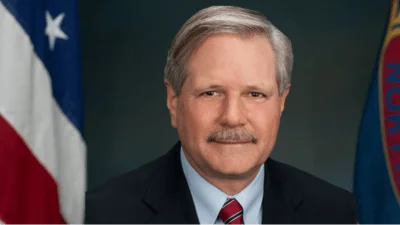Kelly Armstrong, Governor | Facebook
Kelly Armstrong, Governor | Facebook
North Dakota lawmakers have approved significant property tax relief and reform for homeowners, delivering a critical legislative achievement for Governor Kelly Armstrong. The property tax relief package, closely mirroring the governor’s January proposal, aims to alleviate homeowners' financial burdens while controlling local government expenditure growth.
Governor Armstrong lauded the bill, declaring, “This bill provides real relief and real reform for taxpayers. It’s responsible, affordable and durable. It creates Legacy Fund buy-in, and it’s the single most impactful thing we could do for North Dakota citizens this session.”
House Bill 1176 passed with overwhelming support in both chambers, with an 86-4 vote in the House and a unanimous 46-0 in the Senate. Armstrong is expected to sign the bill soon.
The legislation increases the annual primary residence property tax credit from $500 to $1,600, funded by the state's $12 billion Legacy Fund. The relief is projected to cost $409 million for 2025-2027, with potential for future adjustments aligned with the Legacy Fund's growth.
The bill also adopts Armstrong’s suggested 3% cap on local property tax budget increases, affecting residential, commercial, and agricultural properties. A carry-over provision allows unused portions of this cap to be applied over the next five years. Additional provisions enhance the renter’s refund program and expand tax breaks for disabled veterans.
The bill was introduced and supported by a group of lawmakers led by Rep. Mike Nathe, including House Majority Leader Mike Lefor and Senate Majority Leader David Hogue.
As the legislative session concluded, a preliminary two-year general fund budget of $6.25 billion and an overall state budget of $20.3 billion were approved, marking slight increases over the prior period.
Among other legislative priorities, the passing of HB 1160 mandates phone-free policies in K-12 schools, while SB 2354, a companion bill, was already signed into law. The governor also enacted three bills centered on recovery and reintegrating former inmates into communities, supported by agreements with local jails to mitigate overcrowding.
The Legislature sanctioned a new State Hospital in Jamestown with a $300 million budget, expanding mental health services. This initiative is supplemented by grants for psychiatric facilities in Grand Forks and Williston.
Senate Bill 2241 established regulations for public charter schools, previously prohibited in North Dakota. Lawmakers also allocated funds for higher education through Challenge Grants and initiated a natural gas pipeline project to support energy infrastructure.
Legislation focused on military and first responder recognition concluded the session, with bills providing enhanced benefits and infrastructure projects to support these groups.





 Alerts Sign-up
Alerts Sign-up